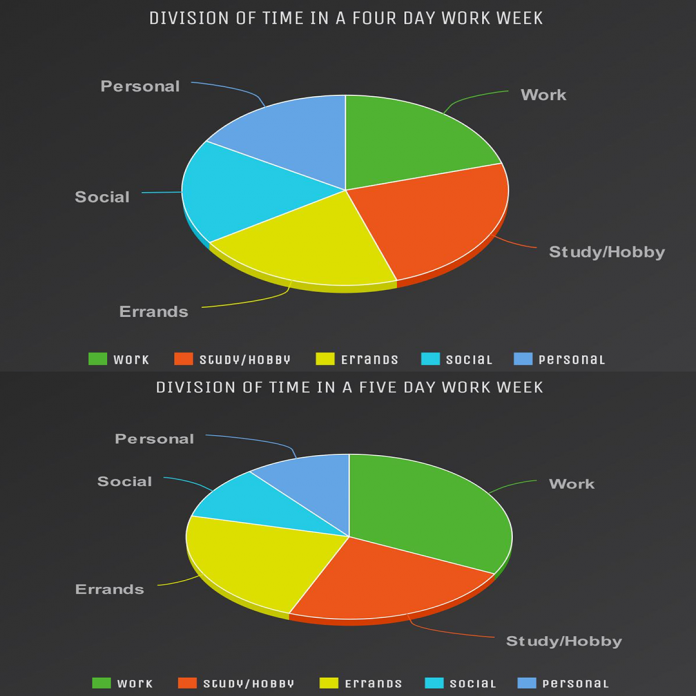In an era where the nature of work is evolving, the structure of how we work should follow suit. Since the pandemic, companies have learned that work can be flexible and productive but we are still seeing pushback on more flexible schedules. A recent survey by Bankrate revealed widespread support for the four-day workweek. Among the adults surveyed, 81 per cent advocated a four-day workweek replacement for the traditional five-day workweek.
The overwhelming support for a smaller work schedule extends to respondents’ willingness to make sacrifices, such as working longer hours, switching jobs, or increasing in-person workdays, to attain a four-day workweek. In the midst of a new generation entering the workforce and redefining work-life balance, it is time to seriously consider the merits of embracing this bold movement.
A lot of the enthusiasm for the four-day workweek stems from the benefit of having one extra day off, though some claim that this will ultimately do the opposite. This is because if employees work fewer days, they will have to be busier to keep up with demand, making them just as stressed as before. The notion that the four-day workweek will lower employee morale paints a bleak picture for both those in the workforce and students about to enter.
Despite this, a study from the University of Cambridge found that by reducing the days worked in a week, 71 per cent of employees experienced less burnout compared to the start of the trial. The reduction of days in the office proved beneficial to employee well-being as participants claimed the extra day of personal time actually made it easier to keep up in the workplace. This is due to there being more time for workers to run errands, do homework and relax before returning to work, positively impacting worker morale. This means Workers have more time to relax on their time off and student-workers will have more time to focus on their studies making this a positive addition to work culture.
There is also concern about companies losing money trying to keep up with these shifts in work culture. Many people say that conforming to this new norm could be detrimental to businesses by lowering productivity, costing the company more than helping it. Daniel Hamermesh, a professor at the University of Texas, claims that it’s hard to believe this change can be made with our current work culture and will hinder output.
However, many businesses have actually seen an increase in revenue and productivity since implementing a more compressed workweek. A few companies in Canada, such as Juno College and The Township of Algonquin Highlands, have successfully made the switch.
Subsequently, other Canadian companies that participated in trials of this scheduling model with Boston University have reportedly increased their revenue by 15 per cent during the trial.
This is because companies began to hold more concise meetings and changed their email procedures to prevent chain-mail, among other time-saving strategies. With this, it becomes evident that the shorter workweeks push employers to work more efficiently to get the most out of their working days, thus creating more revenue due to increased productivity, ultimately creating a better workspace for the next generation of workers.
Despite this, many still claim a four-day workweek will be limited in its benefits, citing the notion that the benefits of this working schedule will be short-lived and workers will be placed back at square one.
This is because the four-day workweek is seen as a trend that needs to be looked at more to be considered a serious game change in some circles. There is a lot of distrust in many groups towards the change.
In contrast, the Cambridge study found that employee sick days were reduced by 65 per cent, and staff turnover diminished by 57 per cent using the four-day model.
This demonstrates that the benefits of a shorter workweek affect more than revenue and employee well-being; they also maintain present employees. This means that this model has had such a positive impact that employees are calling in sick less often, most likely due to the alleviated stress of a compressed workweek.
As companies stand at this crossroads of change, the four-day workweek emerges as more than a fleeting trend but as a potential catalyst for a more balanced and engaged workforce.
The four-day workweek represents a progressive step toward redefining work as it promises improved well-being, enhanced productivity, and lasting benefits for both employees and employers. Ultimately, the four-day workweek is something workers should advocate for to create a better work culture for themselves and the next generation of workers to come.




